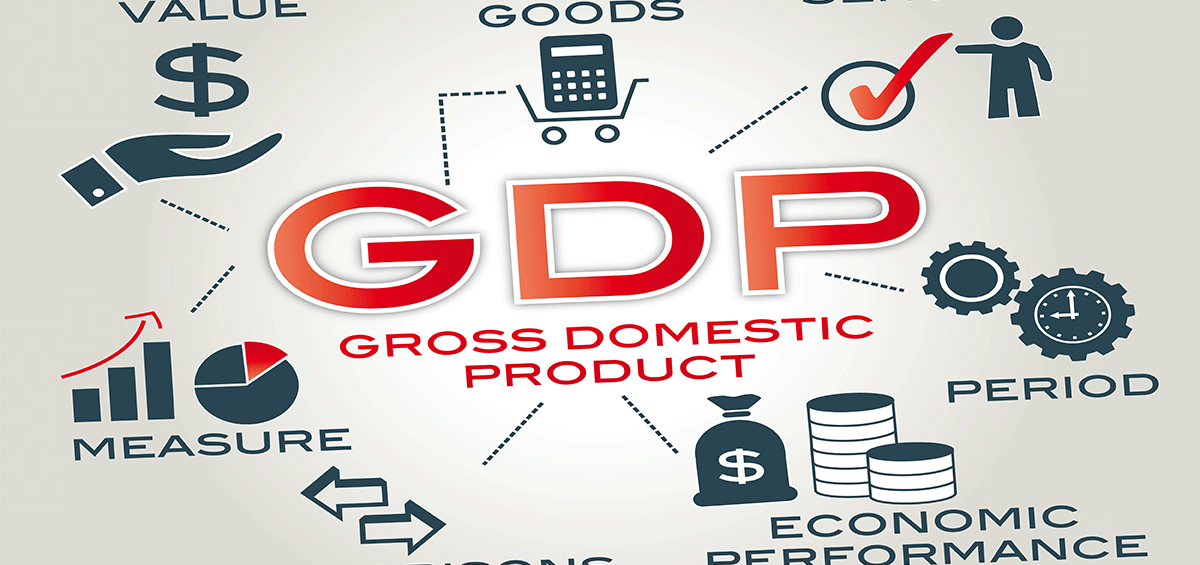GDP, or gross domestic product, measures the value of goods and services produced by a nation’s economy less the value of goods and services used in production. In essence, GDP is a broad measure of the nation’s overall economic activity and serves as a gauge of the country’s economic health. Countries with the largest GDP are the United States, China, Japan, Germany, and the United Kingdom. GDP generally provides economic information on a quarterly basis and is calculated for most of the world’s countries, allowing for comparisons among various economies.
Important information that can be gleaned from GDP includes:
- A measure of the prices paid for goods and services purchased by, or on behalf of, consumers (personal consumption expenditures), including durable goods (such as cars and appliances), nondurable goods (food and clothing), and services (transportation, education, and banking)
- Personal (pre-tax) and disposable (after-tax) income and personal savings
- Residential (purchases of private housing) and nonresidential investment (purchases of both nonresidential structures and business equipment and software, as well as changes in inventories)
- Net exports (the sum of exports less imports)
- Government spending on goods and services
GDP can offer valuable information to investors, including whether the economy is expanding or contracting, trends in consumer spending, the status of residential and business investing, and whether prices for goods and services are rising or falling. A strong economy is usually good for corporations and their profits, which may boost stock prices.
Increasing prices for goods and services may indicate advancing inflation, which can impact bond prices and yields. In short, GDP provides a snapshot of the strength of the economy over a specific period and can play a role when making financial decisions. All investing involves risk, including the possible loss of principal, and there is no guarantee that any investment strategy will be successful.
Copyright 2006- Broadridge Investor Communication Solutions, Inc. All rights reserved.
Broadridge Investor Communication Solutions, Inc. does not provide investment, tax, or legal advice. The information presented here is not specific to any individual’s personal circumstances.
To the extent that this material concerns tax matters, it is not intended or written to be used, and cannot be used, by a taxpayer for the purpose of avoiding penalties that may be imposed by law. Each taxpayer should seek independent advice from a tax professional based on his or her individual circumstances.
These materials are provided for general information and educational purposes based upon publicly available information from sources believed to be reliable—we cannot assure the accuracy or completeness of these materials. The information in these materials may change at any time and without notice.
*Non-deposit investment products and services are offered through CUSO Financial Services, L.P. (“CFS”), a registered broker-dealer (Member FINRA / SIPC) and SEC Registered Investment Advisor. Products offered through CFS: are not NCUA/NCUSIF or otherwise federally insured, are not guarantees or obligations of the credit union, and may involve investment risk including possible loss of principal. Investment Representatives are registered through CFS. Coastal Federal Credit Union has contracted with CFS to make non-deposit investment products and services available to credit union members.
CFS representatives do not provide tax or legal guidance. For such guidance please consult with a qualified professional. Information shown is for general illustration purposes and does not predict or depict the performance of any investment or strategy. Past performance does not guarantee future results.
Trust Services are available through MEMBERS Trust Company. CFS* is not affiliated with Members Trust Company.






